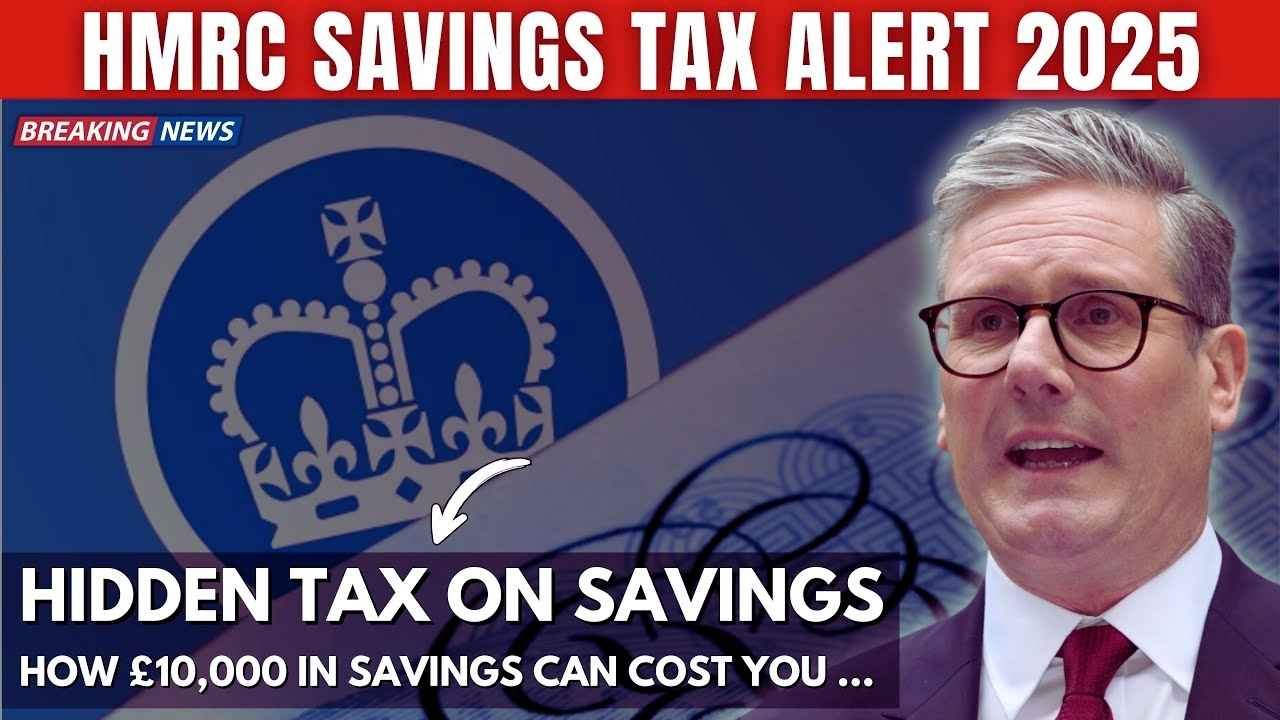A new warning from HMRC is making savers across the UK check their bank accounts. If you’ve got £10,000 or more tucked away, you could face a surprise tax bill. With interest rates rising, the money your savings earn might push you into paying tax, even if you’re not a high earner. HMRC is urging people to understand the rules to avoid unexpected penalties. Here’s the lowdown on what’s happening and how to stay on top of it.
Why Your Savings Are Under Scrutiny
Savings accounts are paying more interest than they have in years, which is great news for savers but comes with a catch. HMRC taxes the interest you earn, not the savings themselves. If your account earns enough interest, you might owe tax, even if you’re a basic-rate taxpayer. The Personal Savings Allowance (PSA) lets you earn some interest tax-free, but many people don’t realise they’ve gone over the limit until HMRC comes knocking.
How the Tax Works
The PSA gives basic-rate taxpayers (20% tax band) £1,000 of tax-free interest each year. Higher-rate taxpayers (40% band) get £500, and those earning over £125,140 get nothing. With savings rates now hitting 4-5%, a £10,000 pot could easily earn £400-£500 a year. If you’ve got more saved or multiple accounts, you could hit the tax-free limit fast. For example, £25,000 at 4% interest earns £1,000—enough to use up a basic-rate taxpayer’s allowance.
Here’s a quick guide to the Personal Savings Allowance:
| Tax Band | Annual Tax-Free Interest | Example Savings at 4% Interest |
|---|---|---|
| Basic Rate (20%) | £1,000 | £25,000 |
| Higher Rate (40%) | £500 | £12,500 |
| Additional Rate | £0 | Any interest is taxable |
How to Check If You Owe Tax
Figuring out if you owe tax is simple. Look at your savings accounts and check the interest earned over the year. Your bank or building society should send you a statement, often at the end of the tax year. Add up the interest from all your accounts. If it’s over your PSA, you’ll owe tax on the extra. For basic-rate taxpayers, that’s 20p for every £1 over the £1,000 limit. If you’re not sure, check your bank’s app or give them a call.
What to Do If You’re Over the Limit
If your interest goes above the PSA, HMRC expects you to report it. Most people don’t need to file a tax return, so HMRC will usually adjust your tax code to collect what you owe through your wages or pension. If you’re self-employed or don’t pay tax through PAYE, you’ll need to tell HMRC directly, usually via a Self Assessment. To avoid a big bill, you could move some savings into a tax-free ISA, where all interest is tax-free. Just make sure you stay within the £20,000 annual ISA limit.
Act Now to Avoid Trouble
HMRC is cracking down on unreported savings interest, and penalties for not declaring can sting. Check your savings now and see if you’re close to the PSA limit. Moving money to an ISA or spreading savings across accounts in different tax years can help. If you’re unsure, a quick chat with a financial adviser or a call to HMRC’s helpline can clear things up. Don’t wait for a letter from HMRC get ahead of the game and keep your savings stress-free.




